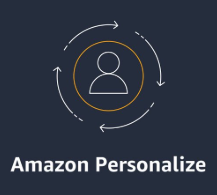In the bustling world of e-commerce, businesses are constantly seeking innovative ways to boost online sales and enhance customer experience. Enter AI tools, which promise to transform the way companies interact with customers, manage inventory, and optimize their marketing strategies. However, as these tools become more prevalent, they raise a provocative question: Are they revolutionizing online sales or replacing the human touch? Let's explore some of the top AI tools for e-commerce and their impact on the industry.

Why AI Tools Are Transforming E-commerce
AI tools are reshaping e-commerce by providing personalized customer experiences, optimizing inventory management, and enhancing marketing strategies. Here's why they're making a significant impact:
Personalized Customer Experiences: AI tools analyze customer data to deliver personalized recommendations and tailor shopping experiences, increasing customer satisfaction and loyalty.
Optimized Inventory Management: AI can predict demand trends and manage stock levels efficiently, reducing costs and minimizing waste.
Enhanced Marketing Strategies: AI tools can analyze market data to optimize pricing strategies, target advertising campaigns, and improve conversion rates.
Automated Customer Support: AI-driven chatbots provide instant customer support, handling inquiries and resolving issues 24/7, improving customer service efficiency.
Top AI Tools for E-commerce You Should Know
Let's delve into some of the top AI tools that are transforming e-commerce. Each tool offers unique features catering to different business needs.
1. Shopify's AI Features

Shopify, a leading e-commerce platform, offers AI-driven features that enhance online store operations.
Features: Includes personalized product recommendations, automated inventory management, and AI-driven marketing insights. Shopify's AI capabilities analyze customer behavior to optimize product offerings and marketing strategies.
Pricing: Subscription-based pricing with various plans tailored for different business sizes.
User Experience: Known for its user-friendly interface and powerful AI features, Shopify is ideal for businesses looking to enhance their e-commerce operations.
Why It Stands Out: Shopify's ability to deliver personalized shopping experiences and optimize business operations makes it a powerful tool for boosting online sales.
2. Amazon Personalize

Amazon Personalize is an AI-driven recommendation engine that delivers personalized shopping experiences.
Features: Includes real-time recommendations, customer segmentation, and personalized marketing campaigns. Amazon Personalize's AI capabilities analyze customer data to provide tailored shopping experiences.
Pricing: Pay-as-you-go pricing based on usage and data processed.
User Experience: Its seamless integration and powerful recommendation engine make Amazon Personalize a popular choice for e-commerce businesses.
Why It Stands Out: Amazon Personalize's focus on delivering personalized customer experiences and optimizing marketing strategies makes it a valuable tool for e-commerce.
3. Google Cloud AI

Google Cloud AI offers a suite of AI tools that enhance e-commerce operations and customer interactions.
Features: Includes product discovery, demand forecasting, and automated customer support. Google Cloud AI's capabilities help businesses optimize inventory management and improve customer service.
Pricing: Pay-as-you-go pricing with various plans tailored for different business needs.
User Experience: Its robust AI features and ease of integration make Google Cloud AI suitable for businesses seeking comprehensive e-commerce solutions.
Why It Stands Out: Google Cloud AI's ability to optimize inventory management and enhance customer interactions makes it a powerful tool for boosting online sales.
4. Sentient Ascend

Sentient Ascend is an AI-driven conversion optimization platform that enhances e-commerce marketing strategies.
Features: Includes multivariate testing, personalized marketing campaigns, and conversion rate optimization. Sentient Ascend's AI capabilities analyze market data to optimize advertising strategies and improve conversion rates.
Pricing: Subscription-based pricing with various plans tailored for different business sizes.
User Experience: Its innovative approach to marketing optimization and ease of integration make Sentient Ascend a valuable choice for e-commerce businesses.
Why It Stands Out: Sentient Ascend's focus on optimizing marketing strategies and improving conversion rates makes it a powerful tool for enhancing online sales.
5. ChatGPT for Customer Support

ChatGPT, an AI-driven chatbot, provides automated customer support and enhances customer service efficiency.
Features: Includes real-time customer support, inquiry handling, and issue resolution. ChatGPT's AI capabilities provide instant responses to customer inquiries, improving service quality.
Pricing: Subscription-based pricing with various plans tailored for different business needs.
User Experience: Its powerful customer support capabilities and ease of integration make ChatGPT a popular choice for e-commerce businesses.
Why It Stands Out: ChatGPT's ability to provide automated customer support and enhance service efficiency makes it a valuable tool for improving customer interactions.
Comparison and Analysis
When selecting the right AI e-commerce tool, consider your specific needs:
For Personalized Customer Experiences: Shopify and Amazon Personalize offer extensive personalization features.
For Optimized Inventory Management: Google Cloud AI provides robust inventory optimization capabilities.
For Enhanced Marketing Strategies: Sentient Ascend offers powerful marketing optimization features.
For Automated Customer Support: ChatGPT provides comprehensive customer support solutions.
User Feedback and Industry Trends
User Reviews: Users on platforms like Trustpilot and G2 praise these tools for their effectiveness and user-friendly interfaces. However, some users highlight the importance of customization and support for unique business needs.
Industry Trends: The use of AI in e-commerce is expected to grow, particularly in areas like personalized customer experiences and automated customer support.
Conclusion: Are AI Tools the Future of E-commerce?
AI tools are undeniably transforming e-commerce by providing advanced, data-driven solutions and optimizing business operations. While they enhance efficiency and customer satisfaction, balancing AI-driven processes with human interaction remains crucial. As AI technology continues to evolve, its role in e-commerce will expand, offering new opportunities for businesses to innovate their sales strategies.
